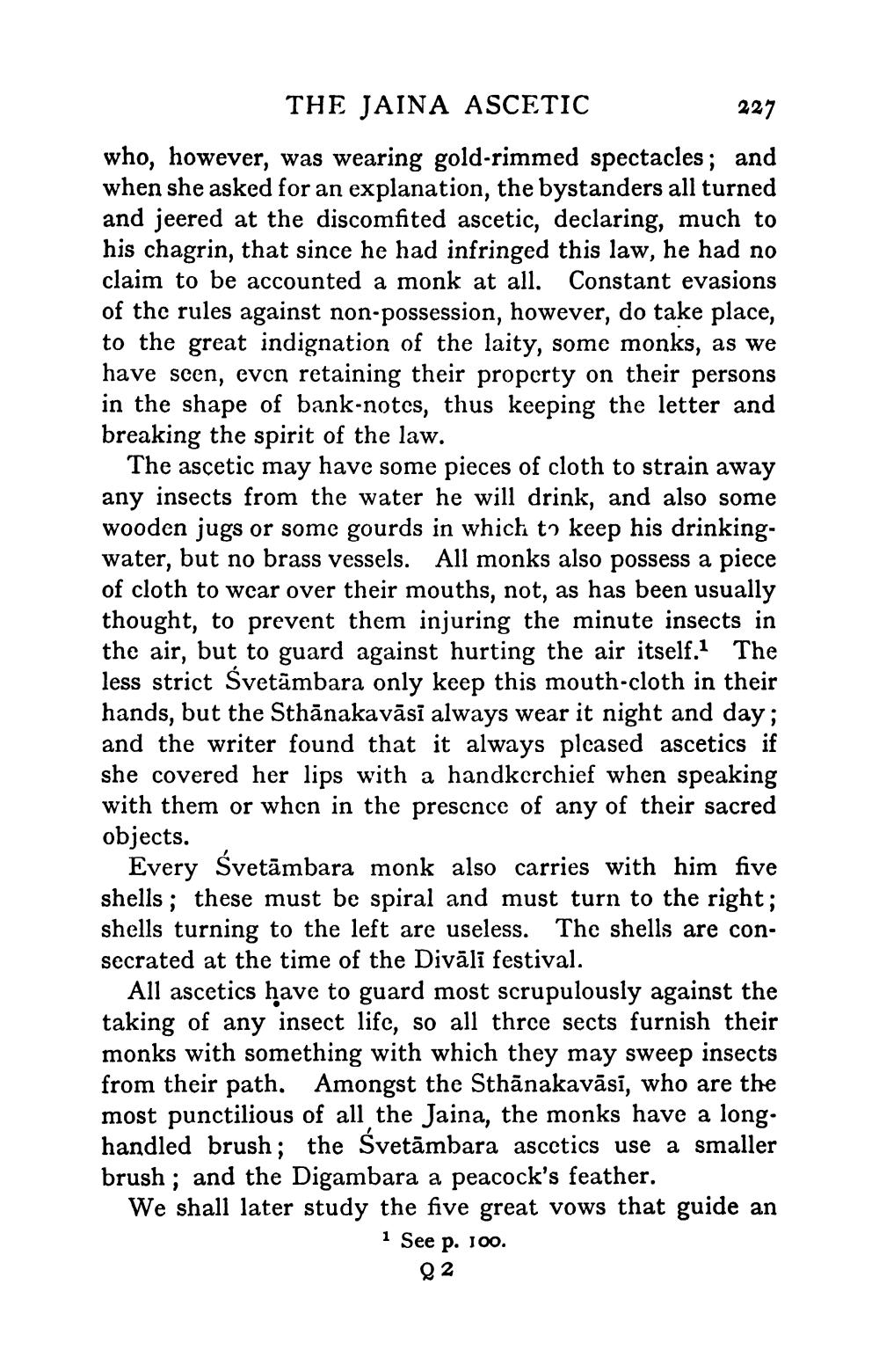________________
THE JAINA ASCETIC
227
who, however, was wearing gold-rimmed spectacles; and when she asked for an explanation, the bystanders all turned and jeered at the discomfited ascetic, declaring, much to his chagrin, that since he had infringed this law, he had no claim to be accounted a monk at all. Constant evasions of the rules against non-possession, however, do take place, to the great indignation of the laity, some monks, as we have scen, even retaining their property on their persons in the shape of bank-notes, thus keeping the letter and breaking the spirit of the law.
The ascetic may have some pieces of cloth to strain away any insects from the water he will drink, and also some wooden jugs or some gourds in which to keep his drinkingwater, but no brass vessels. All monks also possess a piece of cloth to wear over their mouths, not, as has been usually thought, to prevent them injuring the minute insects in the air, but to guard against hurting the air itself. The less strict Svetāmbara only keep this mouth-cloth in their hands, but the Sthānakavāsi always wear it night and day; and the writer found that it always pleased ascetics if she covered her lips with a handkerchief when speaking with them or when in the presence of any of their sacred objects.
Every Svetāmbara monk also carries with him five shells; these must be spiral and must turn to the right; shells turning to the left are useless. The shells are consecrated at the time of the Divāli festival.
All ascetics have to guard most scrupulously against the taking of any insect life, so all three sects furnish their monks with something with which they may sweep insects from their path. Amongst the Sthānakavāsi, who are the most punctilious of all the Jaina, the monks have a long. handled brush; the Svetāmbara ascetics use a smaller brush; and the Digambara a peacock's feather. We shall later study the five great vows that guide an
1 See p. 100.
02




